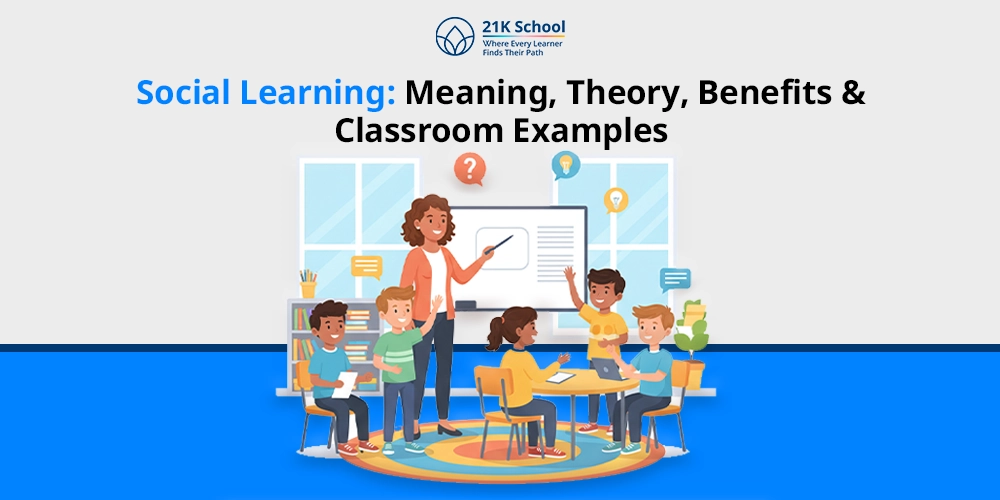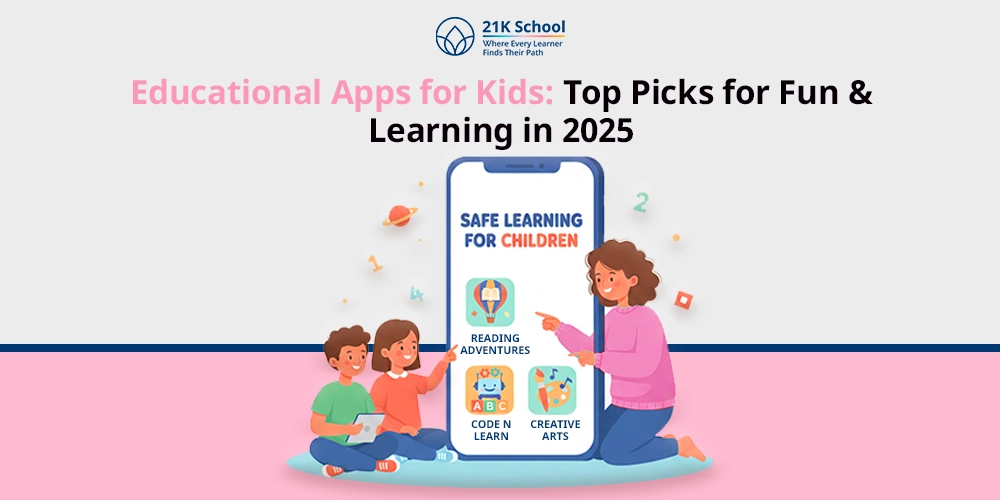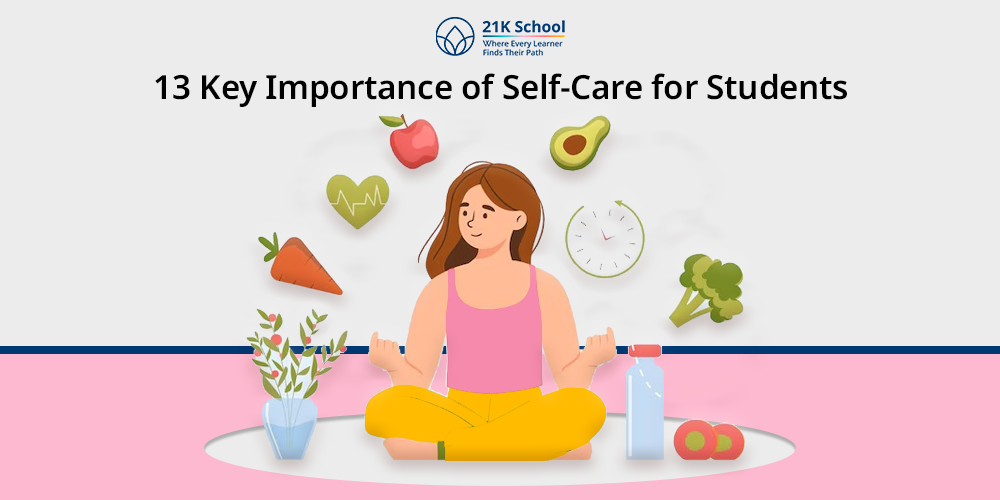
In this competitive world where education, personality development, physical activity, etc play crucial roles one thing each individual misses to balance.
“Self-care”, one of the least used but important parts of students’ lives, helps them to balance everything from classroom learning to personal development.
Students often indulge themselves in different areas, for example, extracurricular activities, assignments, deadlines, and exams which easily neglect the self-care of students.
Self-care is not about relaxation or resting all day. It is an ideal way to improve lifestyle and provide overall support including physical, emotional, and mental well-being.
Here, we will explore what self-care means for students and 13 key reasons why it is so important in students’ lives.
Table of Contents
What Is Self-Care for Students?
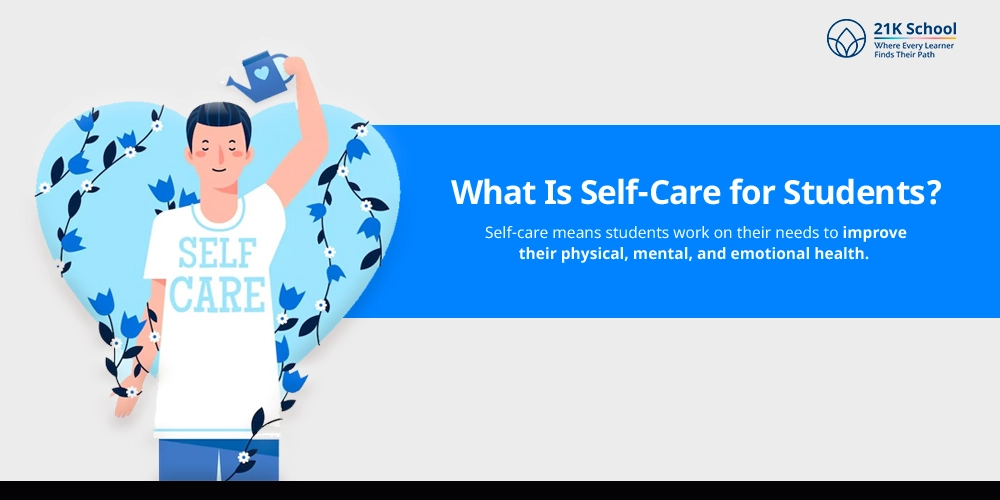
Self-care means students work on their needs to improve their physical, mental, and emotional health.
This can be done through implementing good habits such as proper sleep, eating well, exercising, and managing stress.
Self-care is often considered as a free time activity but it has more importance especially students academic journey.
It includes timely and accurate everyday activities as a habit to reduce the experience of anxiety and stress. For example:
- Practicing meditation or mindfulness.
- Taking short breaks while studying.
- Talking to friends, parents or teachers about stress.
- Eating balanced food.
- Proper sleeping for 8 to 10 hours regularly.
13 Key Importance of Self-Care for Students
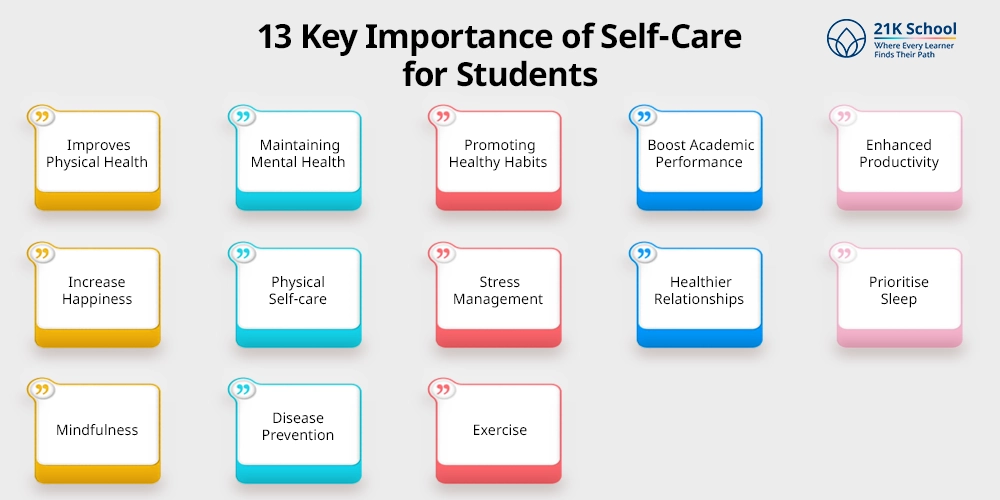
Understanding the benefits of self-care in students’ lives helps in proper implementation. Given below are 13 key importance of self-care for students one must know:
1. Improves Physical Health
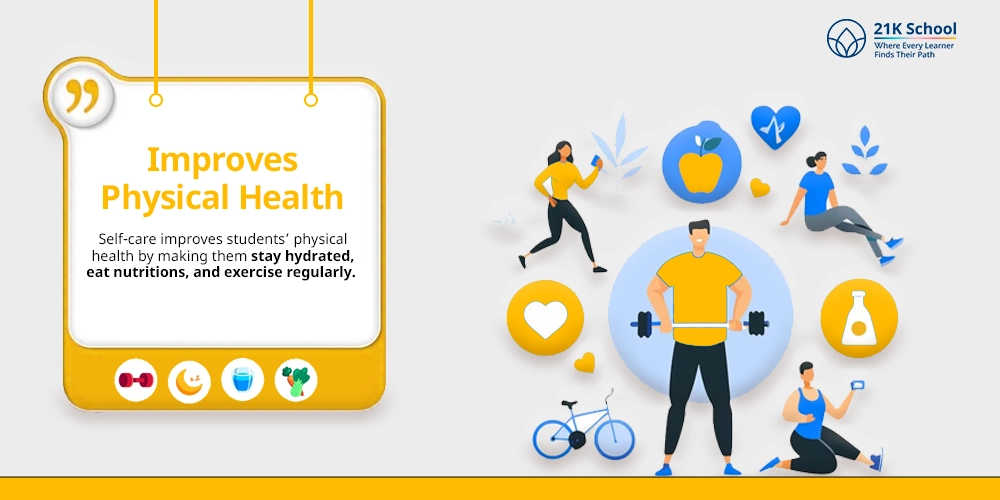
Self-care improves students’ physical health by making them stay hydrated, eat nutritions, and exercise regularly.
This will ensure good health and brain functioning to work effectively. Adding a simple habit in daily life can also increase individual strength.
For example, stretching or taking a walk after a meal improves physical health.
2. Maintaining Mental Health
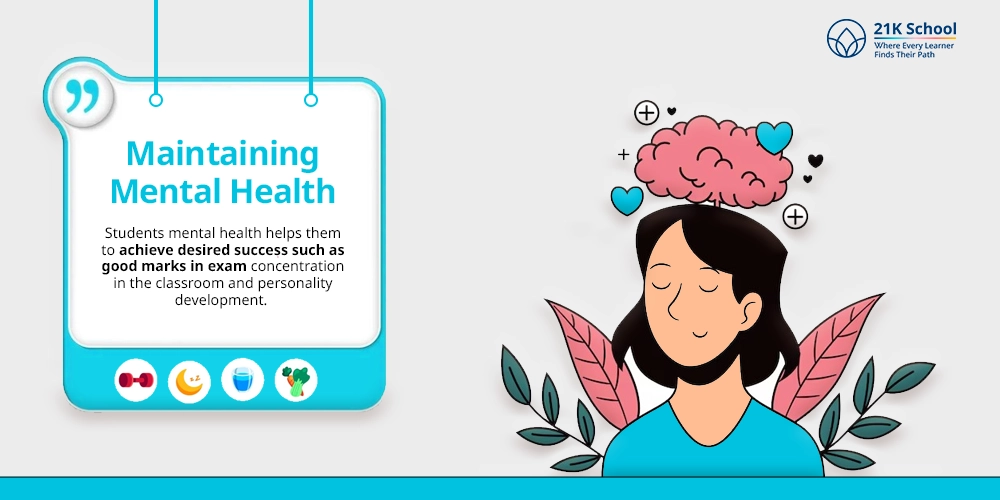
In self-care balancing physical or outer health is not enough students also need to work on maintaining their mental health.
Students mental health helps them to achieve desired success such as good marks in exam concentration in the classroom and personality development.
A good mental health needs a positive environment without any stress and anxiety or depression. Meditation, art and craft ideas and educational activities can be ideal ways.
3. Promoting Healthy Habits
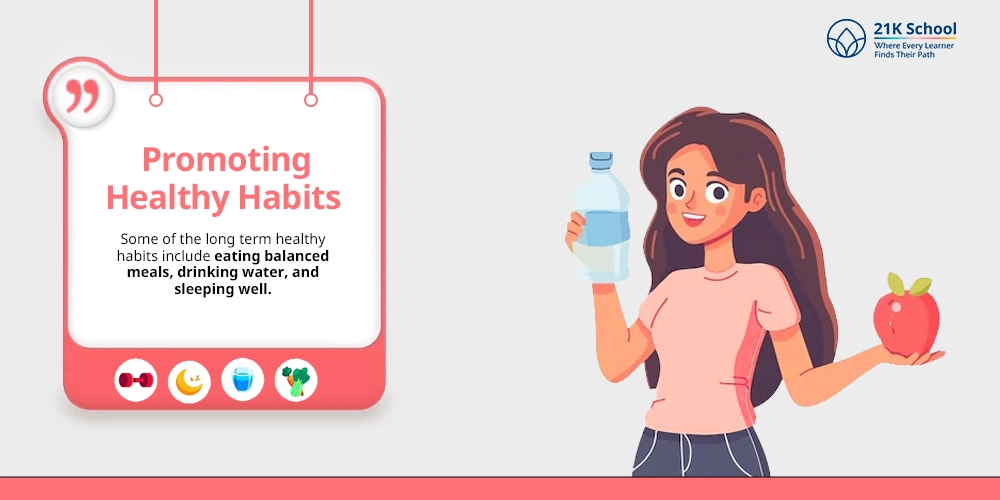
There are various healthy habits that come under self-care which promote overall development of students.
Some of the long term healthy habits include eating balanced meals, drinking water, and sleeping well. Remember, a small change in daily life can impact good.
With healthy habits students can manage their time for learning and extra curricular activities.
4. Boost Academic Performance
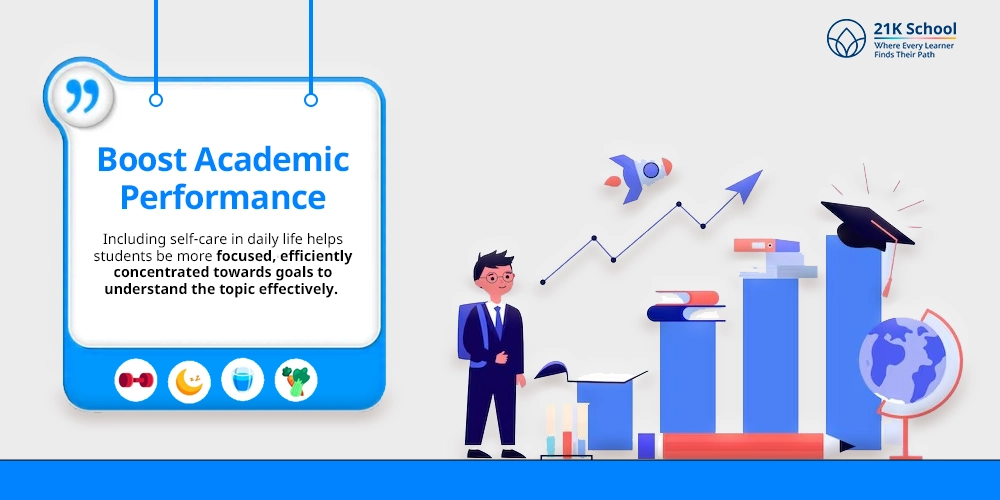
Students with a healthy mind and body ensure good academic performance. To perform better they need to work on self-care activities.
Explore how to improve child academic performance.
Neglecting self-care can lead to stress, exhaustion, low productivity and low grades.
Including self-care in daily life helps students be more focused, efficiently concentrated towards goals to understand the topic effectively.
5. Enhanced Productivity
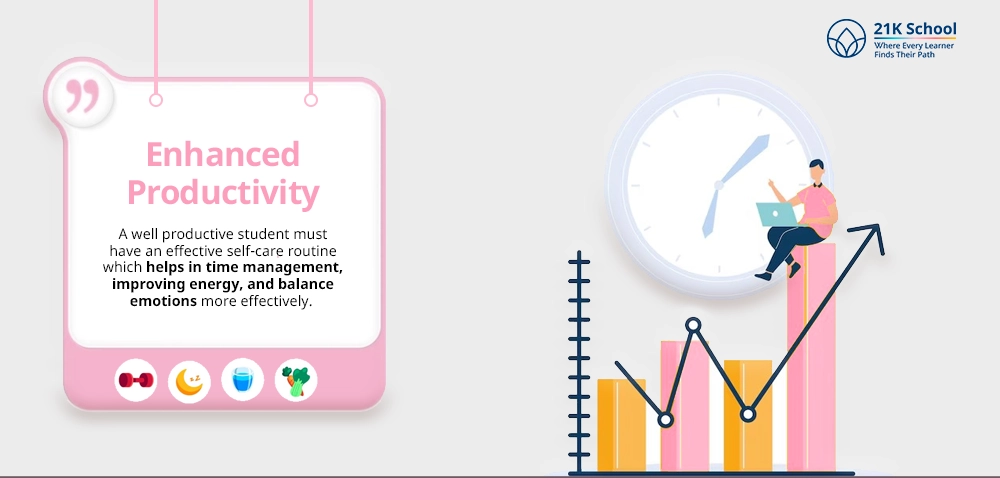
A well productive student must have an effective self-care routine which helps in time management, improving energy, and balance emotions more effectively.
For example, students increase their attention span while learning if they are mentally calm and goal oriented.
6. Increase Happiness
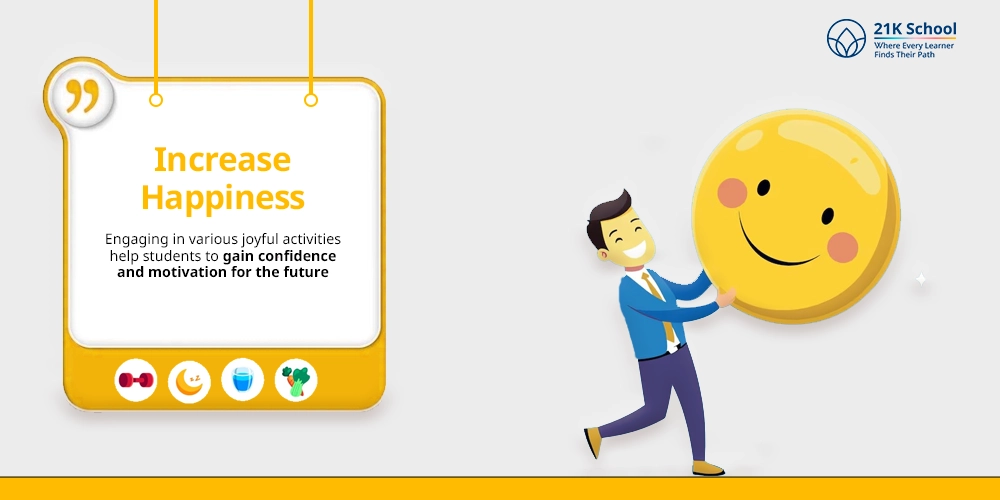
Self-care is not limited to academic growth on physical health. It is also an ideal way to increase happiness by pampering.
Engaging in various joyful activities help students to gain confidence and motivation for the future. Students can pursue various fun learning activities like creative painting or drawing.
7. Physical Self-care
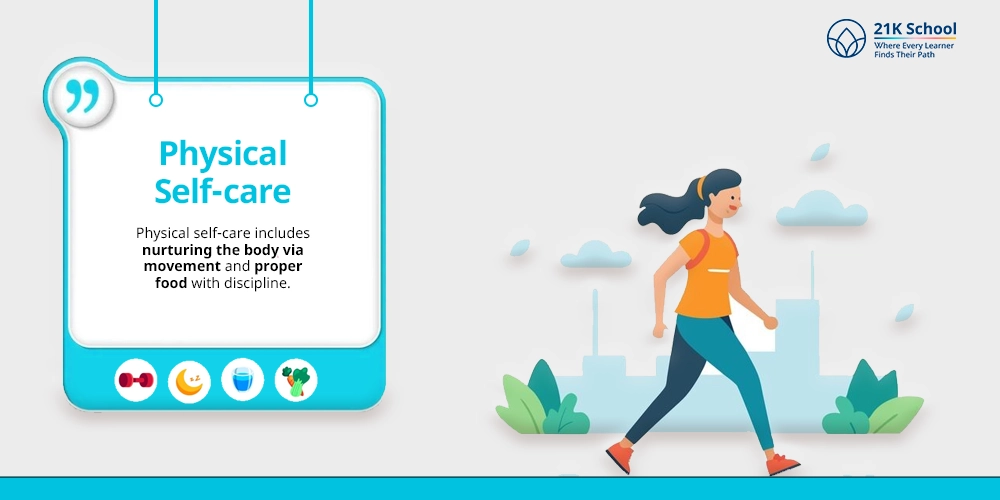
Physical self-care includes nurturing the body via movement and proper food with discipline. The result of physical self-care is visible in the body.
Some common ways such as exercising or walking daily, drinking enough water, eating home-cooked meals, and taking breaks to stretch or relax.
8. Stress Management
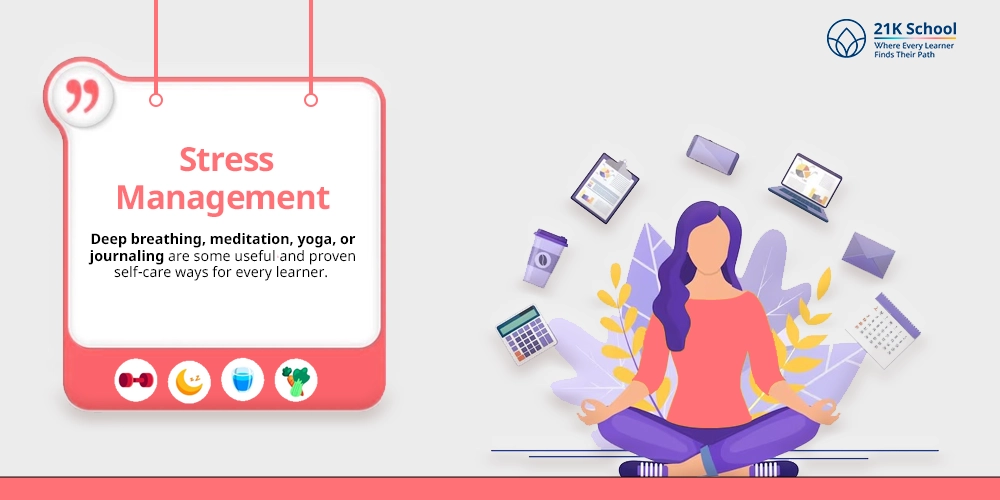
Stress management is one of the important self-care one must consider to nurture their body.
Students with various academic pressures such as exam stress, homework deadline, pressure for good marks, etc reduce motivation and lead to stress and anxiety.
Deep breathing, meditation, yoga, or journaling are some useful and proven self-care ways for every learner.
9. Healthier Relationships
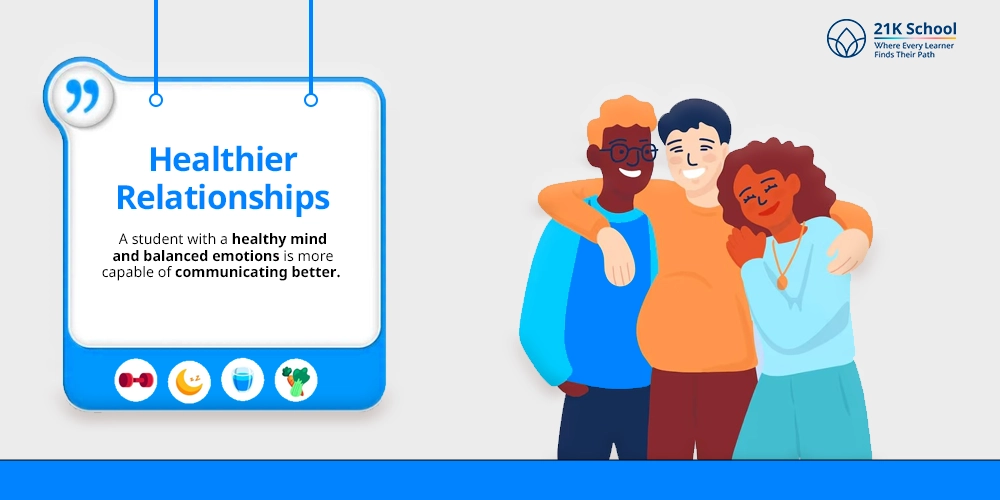
Self-care provides a healthy relationship with others. A student with a healthy mind and balanced emotions is more capable of communicating better.
This reduces misunderstanding, mood swings, bad communication and improves family and friendship bonds.
Remember, a healthy body and mind always ensure a healthy relationship.
10. Prioritise Sleep
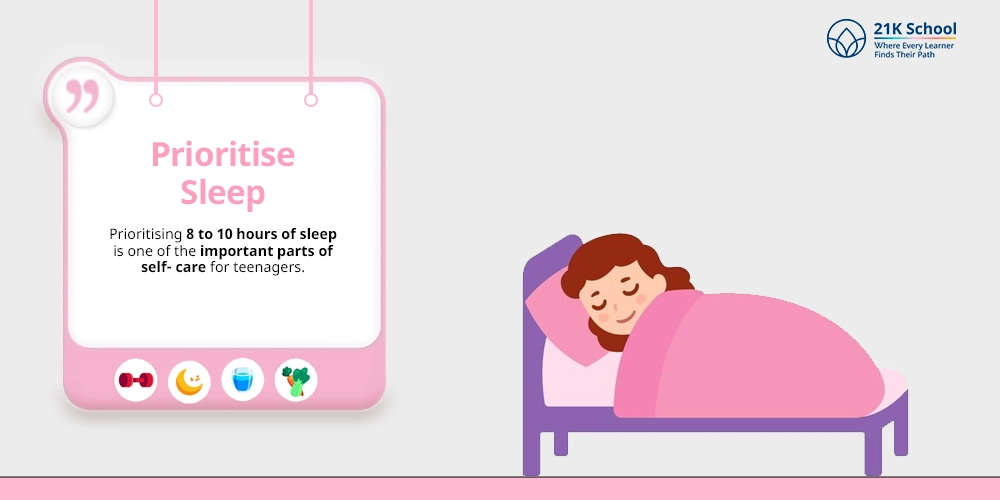
Students due to other priorities often neglect sleep or sleeping schedules. It can impact both mind and body.
Prioritising 8 to 10 hours of sleep is one of the important parts of self-care for teenagers. Students must follow a daily planner and take rest accordingly.
Relaxed and calm mind capable of problem-solving and full filling daily activities with precision.
11. Mindfulness
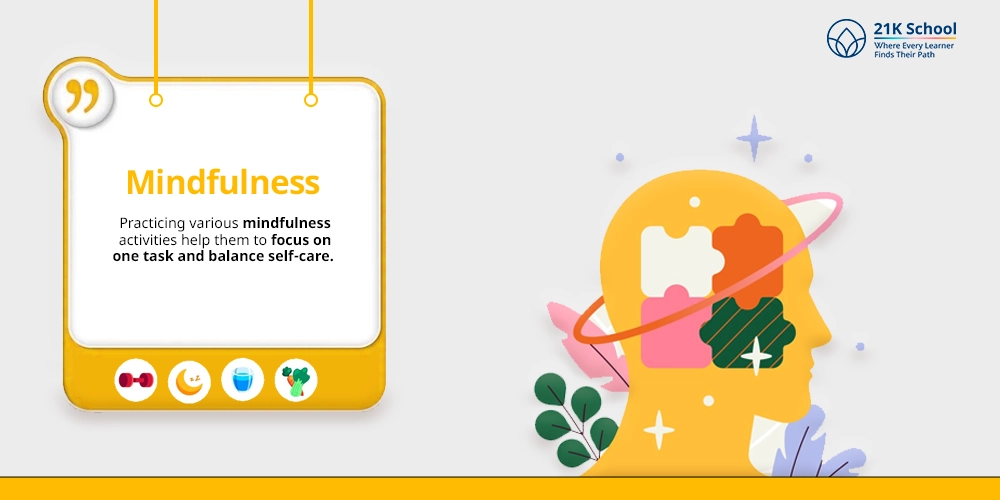
Student mindfulness means fully present in a movement. Practicing various mindfulness activities help them to focus on one task and balance self-care.
It is a core component through which students increase self-awareness, improve emotional regulation and stress reduction.
12. Disease Prevention
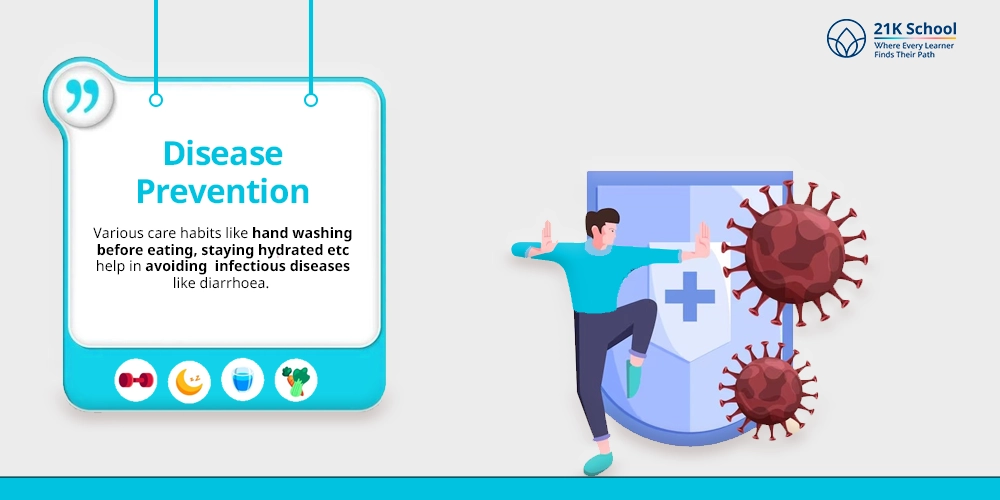
Self-care also has various health benefits in which students can avoid illness by balanced diet, sufficient sleep, and regular exercise.
These practices strengthen the immune system and make them future ready.
Various care habits like hand washing before eating, staying hydrated etc help in avoiding infectious diseases like diarrhoea.
13. Exercise
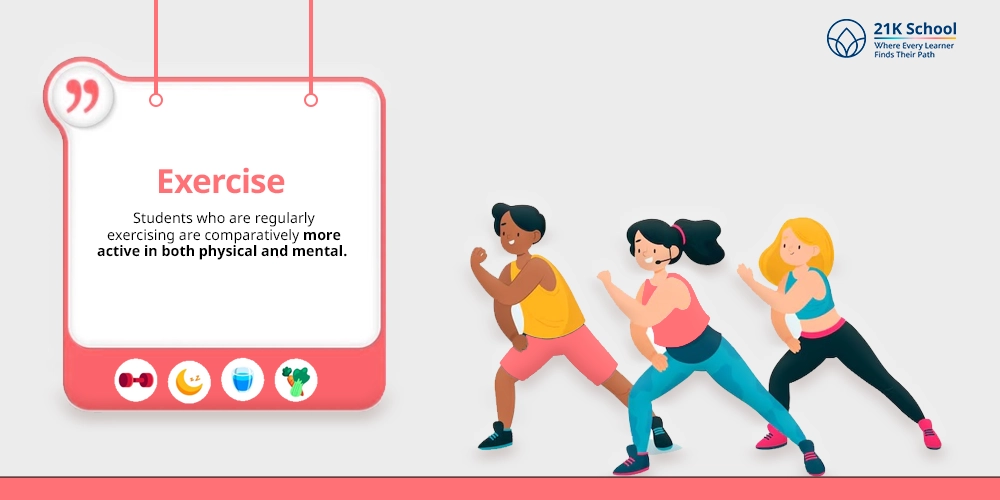
One of the crucial parts of self-care is regular exercise. Students who are regularly exercising are comparatively more active in both physical and mental.
It is one of the natural stress releasing habits anyone can implement in daily life. Students aged between 6-17 years need at least 60 minutes of exercise daily.
Some other alternative options such as jogging, yoga, cycling or dancing are also effective.
Conclusion
Self-care for students’ lives is one of the balanced approaches everyone should implement to get the desired growth.
Students reinforcing self-care are physically and mentally fit to gain academic progress in a happy and stress free manner.
But how to do it? Simply including crucial practices such as timely rest, eat well, exercise, and reflect ensure students are ready to embark.
So, next time take a break because everyone deserves self-care!

